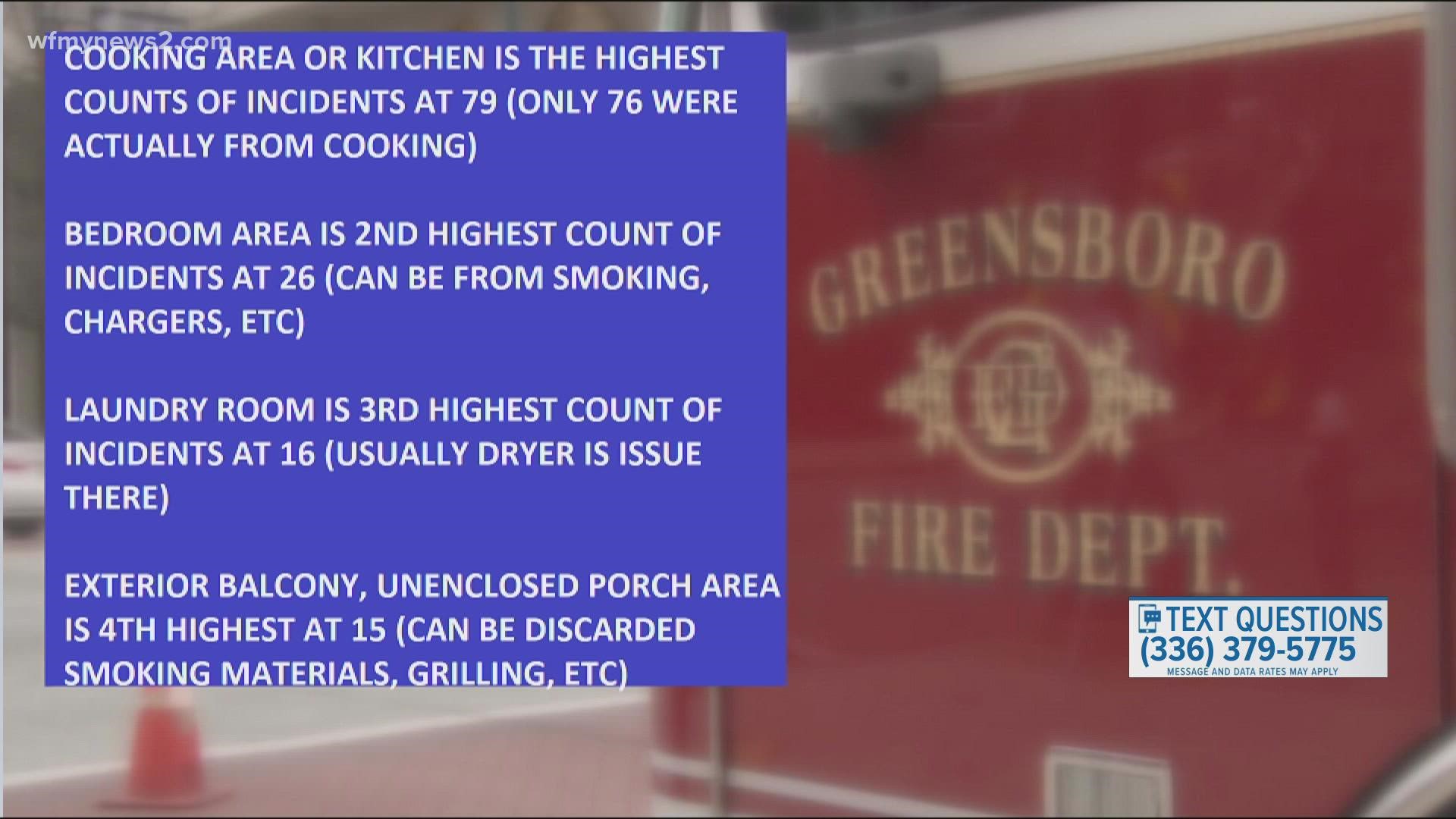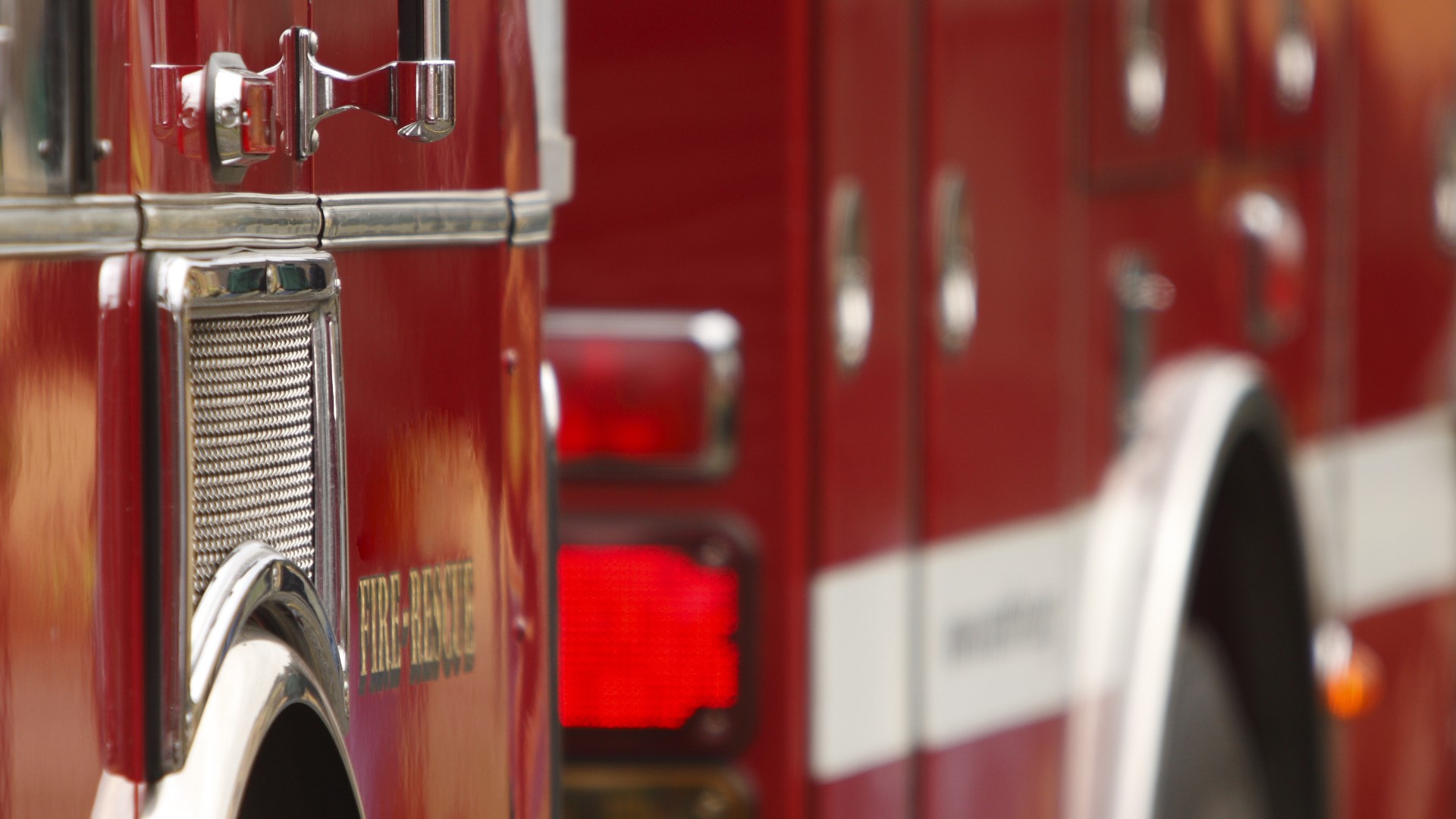GREENSBORO, N.C. — In the past year, the Greensboro Fire Department has responded to 265 structure fires.
A fire can happen any time, anywhere. Our 2 Wants to Know expert Dee Shelton, the Greensboro Fire and Life Safety Educator, answered your questions.
KITCHEN FIRES
According to Shelton, the cooking or kitchen area is the place in the home with the highest number of fire incidents.
There are some things you can do to help prevent kitchen fires from happening:
- Keep an eye on what you fire, unattended cooking causes 30% of fires per year.
- Have a lid nearby that fits the pan you're cooking in. Have a flame? Put the lid down.
- Fry your foods at a medium setting instead of high, or maybe even lower. Know your stove and its temperatures.
SMOKING AND DRYER FIRES
Shelton said the bedroom is the area in the home with the second-highest number of incidents. These fires can be caused by smoking, technology chargers, and other items. The laundry room comes in at number three for incidents in the home, with fires usually caused by dryer issues.
- When it comes to smoking, don't smoke in the bed or the home. And, make sure you have a place to discard used cigarettes, like a metal bucket filled with sand.
- With dryers, make sure you clean the lint trap after every load. And at least once a year, use a cleaning tool to clean your dryer vent if it's a straight metal pipe. If it's a corrugated foil hose, you can just replace them. Make sure you clean your dryer as well but make sure it is unplugged first. If you're not comfortable cleaning it yourself, hire a professional.
SMOKE ALARMS
A key to making sure you stay safe in the event of a fire? Shelton said it's by having working smoke alarms.
- It's best to keep working smoke alarms in bedrooms and hallways on all levels of your home.
- Battery-operated smoke alarms need new batteries every six to 12 months.
- Smoke alarms expire after 10 years.
- If you have an electric, hard-wire smoke alarm, it can be replaced with a long-life battery alarm.
Don't know if your alarm's working? Don't have an alarm? Need help changing batteries? Call the Greensboro Fire Alarm line at 336-373-2576 (ALRM).
CARBON MONOXIDE ALARMS
If you use gas in your home for any reason, have an attached garage, or use a traditional wood-burning chimney/stove, Shelton said you should also have a carbon monoxide alarm in your home.
- Carbon monoxide alarms expire anywhere from 5 to 10 years.
- Carbon monoxide is odorless and invisible.
- Gas appliances and anything that burns fuel of any type will give off CO.
- You do have to buy your own CO alarm, there is no grant for Fire Departments to offer them for free at this time.


